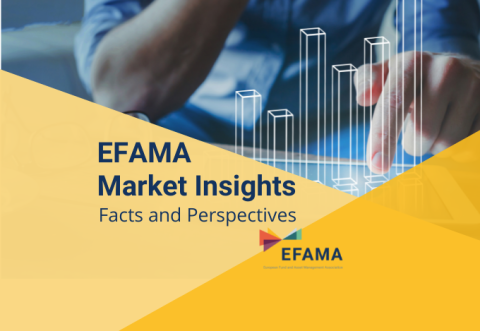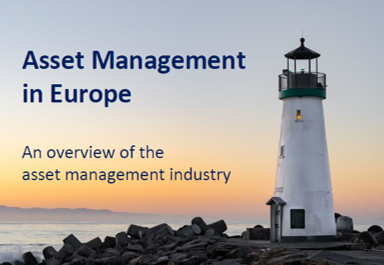Sustainable Finance
The asset management industry plays a key role in meeting the objectives of the European Green Deal to make the EU’s economy sustainable. Our members integrate ESG considerations across their risk management processes and investment decisions. They develop sustainable investment products and foster transparency to fight greenwashing. This increases choice, trust and, in turn, retail investors’ participation. Overall, such efforts mobilise capital towards a fair and just transition to a climate-neutral economy by 2050.
EFAMA actively contributes to the development and implementation of EU’s sustainable finance initiatives. Among them are a comprehensive transparency framework for financial market participants, standards and labels for green financial products, classification of green economic activities and policies enhancing corporate sustainability reporting.
EFAMA response to inception impact assessment - Institutional investors’ & asset managers’ duties regarding sustainability
EU Strategy on Sustainable Finance – Views from a European asset management perspective
EFAMA response to EC CfE ESG ratings and sustainability risks in credit ratings
EFAMA welcomes the opportunity to respond to the EC’s targeted consultation on the functioning of the ESG rating market in the EU and on the consideration of ESG factors in credit ratings. Please note that our response covers, at the same time, ESG ratings and ESG data providers, as the demand for ESG “raw” data has been increasing at a steady pace. The use of ESG data has also rapidly shifted from a narrow set of investment products to being prolific across all investment products.
Sustainable UCITS Bond Funds for a Better Future | Market Insights | Issue #9
EFAMA released today a new issue of its Market Insights series titled ‘Sustainable UCITS Bond Funds for a Better Future'. This report highlights the strong demand for UCITS bond funds that apply ESG strategies in their portfolio selection, confirming the growing interest of investors for ESG products. It analyses the investment characteristics of this type of funds and compares their performance and fees with those of traditional bond funds.
FinDatEx publishes EET v1.0 and EMT v4.0
The European ESG Template (EET) is meant to facilitate the necessary exchange of data between product manufacturer and distributor for the purpose of fulfilling ESG-related regulatory requirements contained in the SFDR, relevant provisions of the Taxonomy Regulation, and the relevant delegated acts complementing MiFID II and IDD. The EET V1 is based on the regulatory situation on the day of publication and will be reviewed regularly depending on the evolving regulation, and at least confirmed annually. With regard to the MiFID target market, the EET interacts with the EMT V4.
Annual Review June 2019-June 2020
"It gives me great pleasure to provide you with an overview of our activities since our Annual General Meeting in Paris last year. While we were very much looking forward to hosting you all in Brussels this week, the current crisis and associated travel restrictions has forced us to improvise and turn our meeting into a virtual AGM.
3 questions to Thierry Bogaty on the EU Ecolabel for retail financial products
Q #1 Can the EU Ecolabel for retail financial products help channel individual investors’ savings into environmentally sustainable projects?
A well-designed EU Ecolabel has the potential to provide clear guidance on the financial products retail investors can invest in if they wish to support environmentally sustainable projects and activities - in line with the EU Taxonomy Regulation. The European Commission wants to create a trusted and verified label for retail investors, who would benefit from better comparability of financial products.
Asset Management Report 2019
The EFAMA Asset Management in Europe report aims at providing facts and figures to gain a better understanding of the role of the European asset management industry. It takes a different approach from that of the other EFAMA research reports, on two grounds. Firstly, this report does not focus exclusively on investment funds, but it also analyses the assets that are managed by asset managers under the form of discretionary mandates. Secondly, the report focuses on the countries where the investment fund assets are managed rather than on the countries in which the funds are domiciled.
































